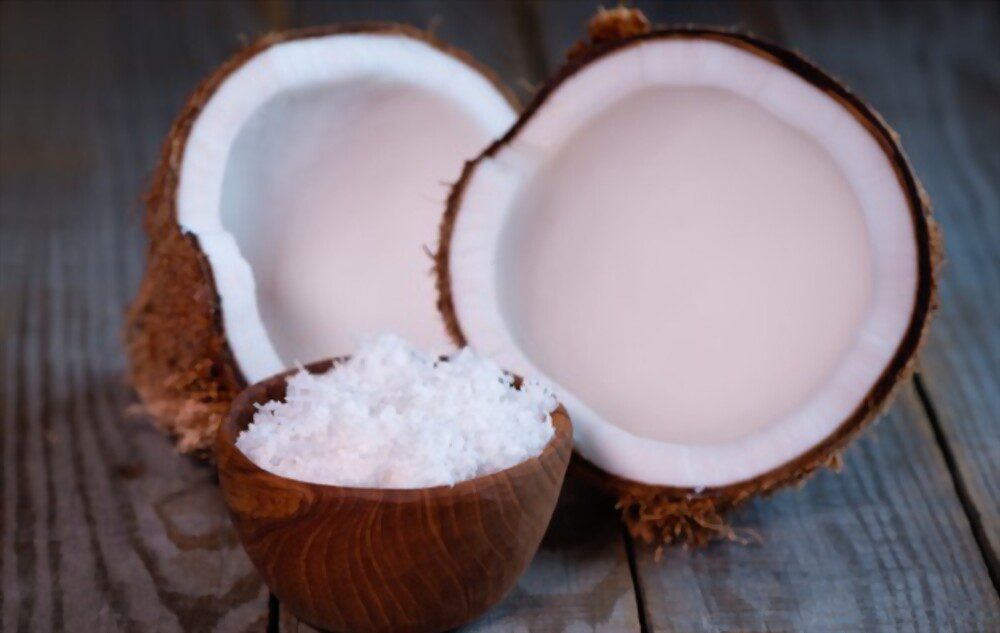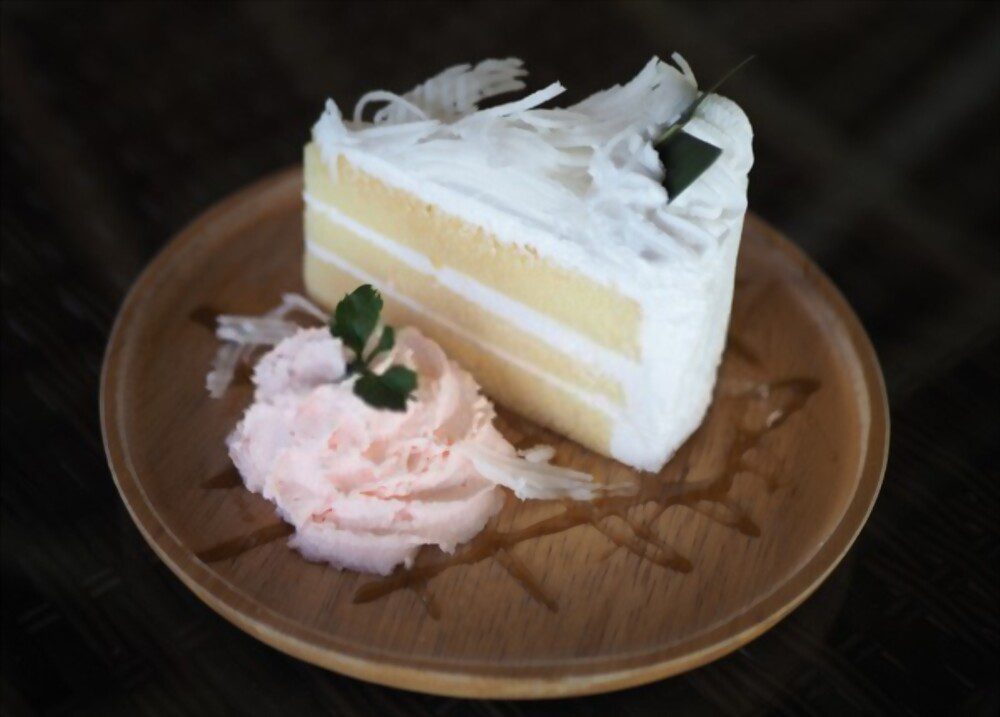Coconut Allergy
Coconut allergy or allergic reactions to coconut can occur but are very rare. In contrast, contact allergic dermatitis to coconut items is much more common. Experts note the Sensitization of coconut pollen.
Coconut is a useful Food and is a member of the palm tree family. The fruit (seed) of the palm is the coconut.
The coconut has great cheap value. As the outer fibrous husk can help in making ropes and mats. The white inner material is eatable, and we can drink coconut water.
Coconut extracts are also added to many foods such as cakes and some chocolates. Some help in making some little ones’ formulas. They are also a component of some cosmetics, hair shampoos, and soaps. Allergy to coconut oil?
Coconut Allergy Symptoms
Although an unusual allergy, coconut allergy symptoms may relate to food allergy. It may happen after drinking or eating foods made using coconut in those who are sensitive. Including:
- Skin reactions such as allergy, hives, or acne.
- Stomach symptoms like queasiness, stomach pain, vomiting, or looseness of the bowels.
- Airway indications include wheezing, breathing problems, or a runny nose.
- Swelling, also called angioedema, of the lips, tongue, or facial area.
Severe reactions, called anaphylaxis, may occur, affecting several organ systems. But, anaphylaxis to coconut is a very rare reaction.
Getting in touch with allergic dermatitis to coconut is more common than an allergic reaction. This happens due to the presence of coconut extracted products. These are coconut diethanolamine, cocamide sulfate, cocamide DEA, and CDEA. They occur in cosmetics such as shampoos, soaps, cleansers, and hand-cleaning liquids.
A scorching rash may develop after getting in touch with the coconut allergen. It may take various days to treat. If you think, contact dermatitis is due to coconut. Contact your doctor for appropriate testing and proper coconut allergy treatment.


Is coconut a nut allergy?
Some people also ask, is coconut a nut allergy? Botanically, coconuts are almost relevant to other palm and betel nuts. While botanical connections are not the only factor that figures out whether two foods will be cross-reactive.
If anyone has an allergy to peanuts or tree nuts he may be allergic to coconut due to cross-reactivity. Foods that are nearby biological relatives usually share associated allergenic proteins. For example, cashews and pistachios are two related plants that have similar proteins.
People who are allergic to one of those are often allergic to the other one at the same time. As regards coconut, there are some facts of cross-reactivity among coconuts and hazelnuts. It is also between coconuts and walnuts.
The botanical level between coconuts and tree nuts endorse. Most people with a tree nut allergy can bear coconut allergy or not.
Allergy Testing
In Australia or New Zealand, coconut ingredients are not available for skin prick testing. At present no individual coconut allergen is available for blood allergy testing either. If you have issues about the risk of allergic typical reactions to other foods.
Consult any Allergy specialist and he will perform skin prick allergy testing or blood allergen unique IgE testing.
Coconut allergy is usually recognized by a medical doctor (allergist). After a complete medical history, physical test, patch testing, and food allergen testing. The allergist confirms whether a person is allergic to a specific allergen or not.
Coconut Allergy Treatment
The treatment for coconut allergy is the removal of coconut from the diet. You should avoid eating coconut and coconut products. In severe coconut allergic reaction allergist gives allergy shots to allergy victim.


Preventions
As mentioned, after the confirmation of allergy in a person. All coconut must be wiped out from the diet to stay away from an allergic reaction due to coconut.
Coconut is found in many food items and products. It is added for flavor, texture, and as a modern ingredient addition in food products (as of this writing). Stay away from all foods made with coconut, e.g., snacks, other desserts, and cereal products.
For the requirements of product labeling and consumer protection against potential allergens. The Food Allergy Marking and Consumer Protection Act (FALCPA) admits coconut as a tree nut. Manufacturers must record coconut as a potential allergen component.
The foods including coconut should be labeled “includes tree nuts” under FALCPA. You can also find phrases that say, “Contains coconut” on the tag.
Not only will you find these details in the ingredients list, but they will also be on the bundle. Some items won’t call out coconut-based ingredients on the tag.
There are two things you can do in this scenario. Call the producer and consult about the specific ingredients contained in the product. The second one is, to skip eating the item.
Foods to Avoid
To stay away from coconut in foods if you want to avoid allergy symptoms, you must be a food label examiner. Coconut is found in many foods such as coconut oil, rice, sugar, water, cream, milk, and milk powder. Coconut Oil Allergy?
You may locate coconut in cakes, chocolates, tequila, candy, and many sweets. It can also be integrated with infant formula. As explained, many coconuts extracted ingredients are in soaps and hair shampoos. They could be a possible cause of allergic reaction.
Foods that Contain Coconut
- Coconut cream
- Coconut water
- Ice cream
- Coconut oil (Coconut derived)
- Coconut milk powder
- Granola
- Coconut sugar
- Food that May Contain Coconut
- Candy bars (Almond Joy)
- Cookies
- Coconut milk
- Pie (Coconut cream pie)
- Yogurt (coconut flavor)
- Smoothies
For more healthy, informative discussions stay with us.







